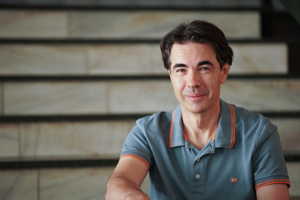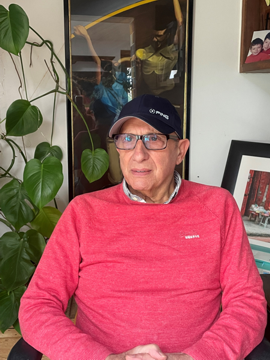
|
|
|
|
|
|
|
|
|
|
|||||||||||
Triangle of knowledge production for continuous education improvement: crossing boundaries and collaboration The main objective of the presentation is to establish a framework for reflecting on a potential future of collaboration in the “triangle” of knowledge production enabling continuous improvement of quality and equity of education. The triangle of knowledge production in education comprises researchers in educational sciences, schools/educators (“street level” practitioners), and education policy makers. The presentation will be organized in three parts. In the first part, we will analyze the prevailing mode of collaboration among these three stakeholders to identify key barriers and challenges. Additionally, we will discuss the negative implications of this prevalent mode of collaboration for educational enhancement. The second part will introduce the 3P project (Prepoznaj, Promoviši, Proširi – Identify, Promote, and Scale Up) briefly, showcasing a novel collaboration model among researchers in educational sciences, schools/educators, and education policy makers. Through an overview of the 3P project and its outcomes, we will highlight its potential benefits alongside some critical pitfalls. Finally, the third part of the presentation will outline and discuss a new mode of collaboration, particularly focusing on the evolving role of researchers in educational science. By doing so, we aim to establish a framework for further reflection on the advantages and shortcomings of this new mode. Short CV Aleksandar Baucal holds the position of full-time professor in Developmental and Educational Psychology at the University of Belgrade and serves as a visiting professor at the University of Tartu, Estonia. Since 2023 he is also an elected member of the International Academy of Education (IEA). He has been actively involved as an expert and policy advisor in numerous projects aimed at enhancing the relevance, quality, and equity of education. Additionally, he is a staunch advocate for the right to quality education for children from vulnerable groups. His work, both scientific and social, is deeply influenced by the socio-cultural theoretical approach to lifelong learning and development. His research primarily explores two major areas. The first area examines how individuals could (co)construct new knowledge, competencies, attitudes, values, and identities through collaboration with various others as well as how the collaboration and socio-cultural context continuously co-constitute each other. The second area of his research focuses on fostering productive collaborations among practitioners, policymakers, and researchers within the educational sector. He investigates how such collaboration within the "triangle of knowledge production" can significantly enhance the relevance, quality, and equity of education. Through his research, Baucal has showcased various effective strategies for integrating quantitative and qualitative methods in a meaningful and purposeful manner. A. Baucal has been also engaged in several professional societies (ECER, EARLI, Educational Research Association of Serbia, Jean Piaget Society, and Serbian Psychologists Society). He served as President elect in Serbian Psychologists Society, coordinator of SIG 10 in the EARLI association, and member of Board of Directors of the Jean Piaget Society. He has published 74 scientific articles, 22 monographs and research reports, 24 chapters, and presented more than 150 conference papers. He has been invited as plenary lecturer at 8 international and national conferences. https://scholar.google.com/citations?hl=en&user=95RyBmMAAAAJ
Curriculum, Humanism and the missing subject The freedom given to teachers by the State is a measure of government confidence.
Short CV Dr. Saville Kushner is Adjunct Professor at Drew University, USA and Emeritus Professor at the University of the West of England, UK. He has held university posts in the UK and New Zealand and is a Visiting Professor at the University of Granada, Spain. He has published widely on curriculum and educational research and evaluation, including a number of books and many articles. His personal advocacy is for Democratic Evaluation for which he is best known. Between 2005 and 2007 Saville served as Regional Adviser for UNICEF in Latin America. |
|
|
| Institute for Social Research in Zagreb, Centre for Educational Research and Development, Frankopanska 22/I, 10000 Zagreb, Croatia, phone: +385 1 4883551 |
 Keynote lectures
Keynote lectures
